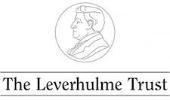 |
Newcastle University Newcastle upon Tyne NE1 7RU United Kingdom. |
 |
What would you say that reading books gives you?
Well, if it’s .. There’s two things If it’s non-fiction it gives me knowledge. It gives me facts, it helps my memory, it also helps ... It’s also interest. It’s interest. If it’s … [inaudible] fiction books, it allows you to – I don’t know – just drift off. You picture … I always picture the scene. It’s kind of your imagination. It helps you with .. Well, I think it helps you with communication; it helps you with ... sometimes your spelling, just the actual word. Sometimes it’s words in a book and you think, I’m not sure what that means. So I’ll got off and get the dictionary out, and look out [?] and think, Oh, I’ve not heard that word before. I wonder what that means? It also allows you to .. I just think it helps your vocabulary, because you’ve gone through ... As you move on through the years you can sort of communicate using some of the words that you’ve heard, understanding them a bit more. You have to balance it and level it in terms of what you say. So people say, ‘I’ve not heard that word, I don’t know what you ..’ You know, that’s ... Sometimes my husband will say, ‘What’s that? What does that mean?’ So I explain. It’s just … Words are such ... It’s such knowledge and such a variety and such a feeling. And also, as I say, it’s part of the .. It’s part of my social kind of world almost. It’s part of what I do, have always done. You know, I’ve always got a book. Put one down, finish it, move on to the next one.
You feel that books are part of your social world then, in terms of what, the characters or …?
Just part .. No, it’s just part of what I am and part of what I do. You know how people … I don’t know, people might like to go out for meals, go to the theatre. Which I do. But sort of stuck on the end of it is always the books. They’re always there. People buy me books. My husband, he does quite a bit of voluntary work for the library at the RVI, so he brings books in and I’ll ... you know, for me, as well.